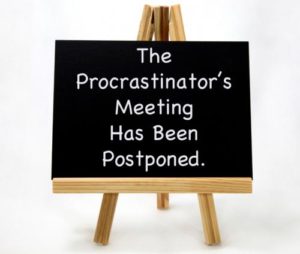Table Talk: How to Make Meetings Productive, Not Prohibitive
According to MeetingKing, organizations in the United States spend $37 billion in wasted meetings every year. What’s more, leaders say they spend a majority of their time in meetings, many of which feel unproductive. Do you or others in your organization dread team meetings? If so, you’re not alone. A lot of people in leadership feel an instant suck of energy when they think about sitting around the table and conversing, whether it’s discussing what’s mundane or meaningful. Why? Because company meetings can earn a reputation for being non-productive, particularly when it comes to accomplishing goals and just getting things done. As a leader, it’s part of your job to recognize when or if meetings have devolved into a sort of dreaded event. Noticing this trend? Take corrective action, implementing smart meeting strategies and little “tricks of the table” can transform these sessions into positive, productive experiences.
If you’re a MAP client, you know that our Vital Factor Team Meetings are a crucial aspect of what we offer through the MAP Vital Factors® System. So we know how to run meetings and what makes one really work. Here are a few points from which to draw, or several ways to make your meetings meaningful and more enjoyable.
Manage your time. If you’re having an accountability meeting, put only items related to your accountability measures and goals on the agenda, then set and adhere to time limits, staying true to topic. If you’re having another kind of meeting, establish your agenda items in advance and really try to stick to them—no ifs, ands or buts! Also, always choose a timekeeper, moving this role around to various team members with each and every meeting you have. This sends the message that time management matters. It also engages people in the responsibility of ensuring it happens and takes some of that burden off of you, too. This frees you up to do other leadership-centric tasks.Demand mutual respect. This is about laying down the ground rules that will make people feel safe and valued around the table. For example, many successful meetings have the rule to always attack the problem, never the person. In other words, keep things from getting personal in nature. In addition, encourage your quiet types to speak up more often and make sure all voices are heard. Let all people know they’re listened to both by prohibiting interruptions, keeping good eye contact with those speaking, and writing down their points so they feel heard and appreciated. Make it a habit to thank individuals for any participation or comments before moving on to the next person or point. Also, acknowledge when someone takes a risk by sharing a unique, extraordinary or even unpopular idea. Your goal, after all, is to nurture a culture of effective, transparent and open communication in spite of whether you agree. This kind of reinforcement will certainly breed that desirable culture and other benefits, such as positive morale, too. Remember that with this, as well as other ways of showing respect, you can better demand it of others if you model it yourself.
Empower all you can. In addition to assigning the role of timekeeper, you can give people other roles so they’re involved, invested and engaged in making meetings productive. For example, every time you have a meeting, ask some participants to help organize and lead it. Get others to put together the agenda. Then, when it comes time for yet another meeting, change up and re-assign those responsibilities, giving people a different task. Getting your team more directly involved in meetings builds a greater sense of teamwork and also helps each participant grow and sharpen important professional skills.What eats up the most time at the majority of the meetings you attend?



